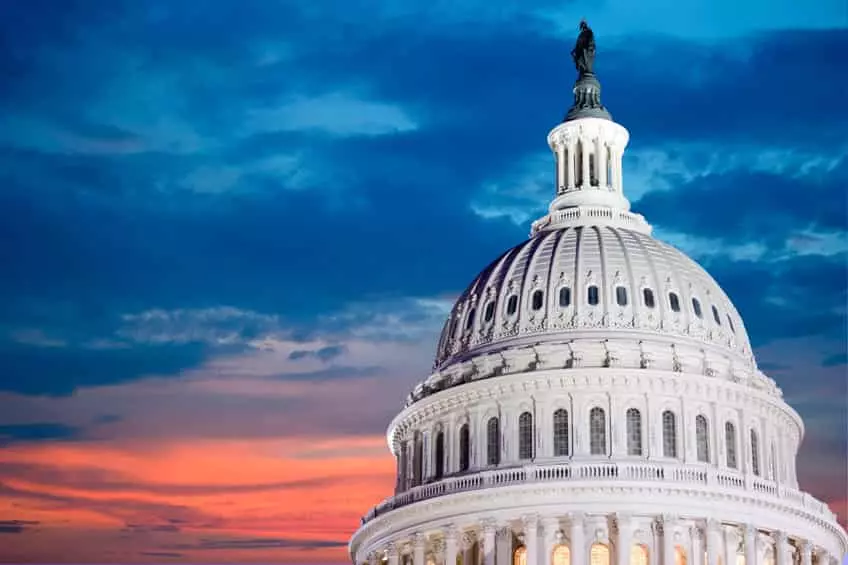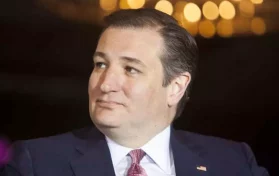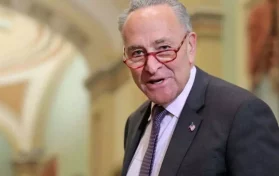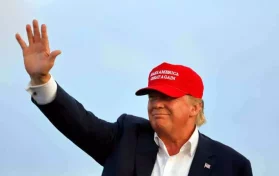
With Christmas day a week away, members of Congress were anxious to tie up any work and head home for a long-anticipated break. However, they would confirm over thirty ambassadors appointed by the Biden Administration before Senate Majority Leader Chuck Schumer (D-NY) would officially adjourn the current session.
The Senate would also leave without voting on the highly controversial Build Back Better bill, which squeaked through the House in late November. The Build Back Better bill has undergone great scrutiny, and late last week, the Senate Parliamentarian would hand down a decision that at least two proposals tied to the spending bill did not meet reconciliation guidelines and must be removed from the bill.
Early Saturday morning, the Senate voted to confirm multiple ambassadors as well as other Biden Administration employees. Majority Leader Schumer also agreed to schedule a post-holiday vote regarding possible sanctions on the company supporting the Nord Stream 2 pipeline – a pipeline that Joe Biden has said in the past must not be allowed to operate. However, with the Ukraine as well as other European allies pleading for sanctions on the Russian company, Biden has been lax to put any kind of teeth into a warning to Russia regarding the natural gas pipeline. It is not clear whether Congress will vote to authorize sanctions on this project.
Prior to his adjournment of the session, Senator Chuck Schumer had threatened to keep the Senate “for as long as it took” to get these confirmations completed.
Notable ambassador nominees who were confirmed during the early Saturday vote include former Chicago mayor Rahm Emanuel, who will serve as the American ambassador to Japan. Others who were confirmed included ambassadors from the United States to Vietnam, Spain, and Somalia. All were confirmed by a voice vote.
Just prior, Senator Schumer agreed to hold a vote on the Nord Stream 2 pipeline proposed sanctions sometime prior to January 14.
President Joe Biden has been in office nearly a year with more than a handful of his presidential nominations to a variety of positions going unfilled. However, this same type of gridlock was present in the Trump Administration as well. This is evidence that no matter the party, the confirmation process for presidential nominees to a variety of offices is now becoming more difficult to navigate.
Democrats blame Republican senators for placing holds on Biden nominees due to foreign policy matters as one reason for the gridlock; however, the Trump administration saw much of the same frustration. Republicans also often dealt with a number of scandalous accusations when nominating cabinet officials, Supreme Court justices, and other important positions within the Administration.
The holds that some GOP senators are utilizing do not stop the confirmation process; however, they do require a number of hours of debate regarding these nominees and their foreign policy positions. Democrats say these hours of debate could be spent doing something more productive.
However, the GOP’s refusal to back down regarding one particular nomination of the Biden Administration to be withdrawn. Biden had nominated Saule Omarova, who was born and educated in Russia, to a banking regulator position. After fiery testimony in the Senate – at which point Senator John Kennedy questioned Omarova’s membership in a Young Communist club, which led him to quip, “I don’t know whether to call you Professor or Comrade” – Omarova felt pressure from even Democratic supporters to withdraw her name from consideration. In early December, she did just that.
Senator Ted Cruz has held his own ensuring that some nominees did not move forward in the confirmation process. He has objected to the waiving of sanctions regarding the Nord Stream 2 pipeline, and earlier this week, Senator Schumer demanded that Cruz lift his holds on Biden Administration nominees. Cruz said he was willing to lift sixteen holds on Biden nominees, and, all day Friday, Cruz and Schumer traded on possible holds to be lifted.
The Biden Administration as admitted that it is heading into the December break with a number of vacancies still being open – markedly more vacancies that previous administrations.





